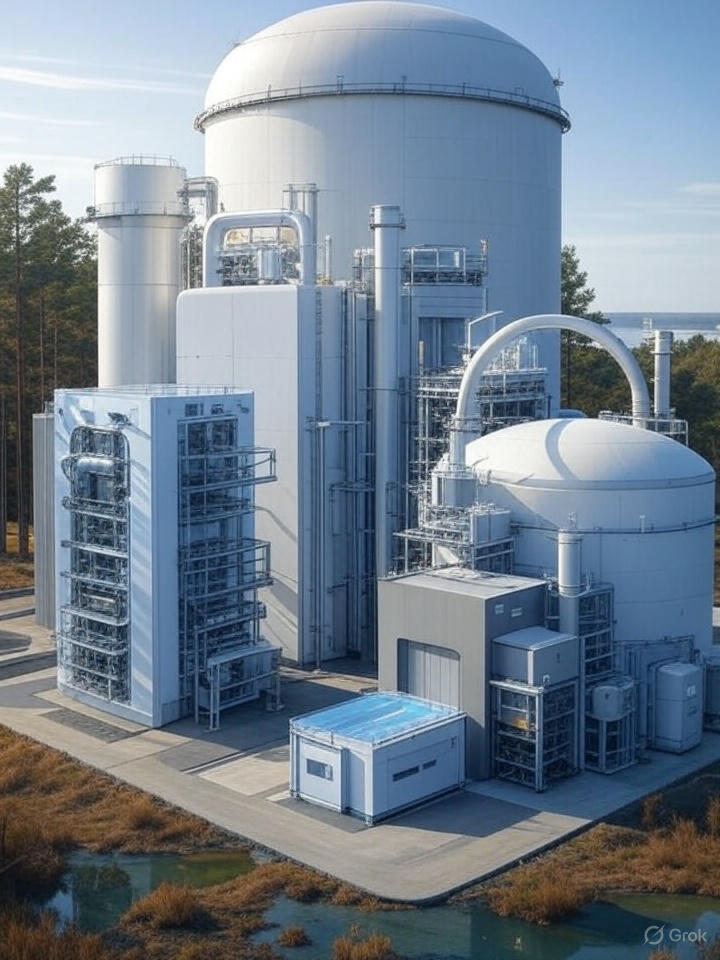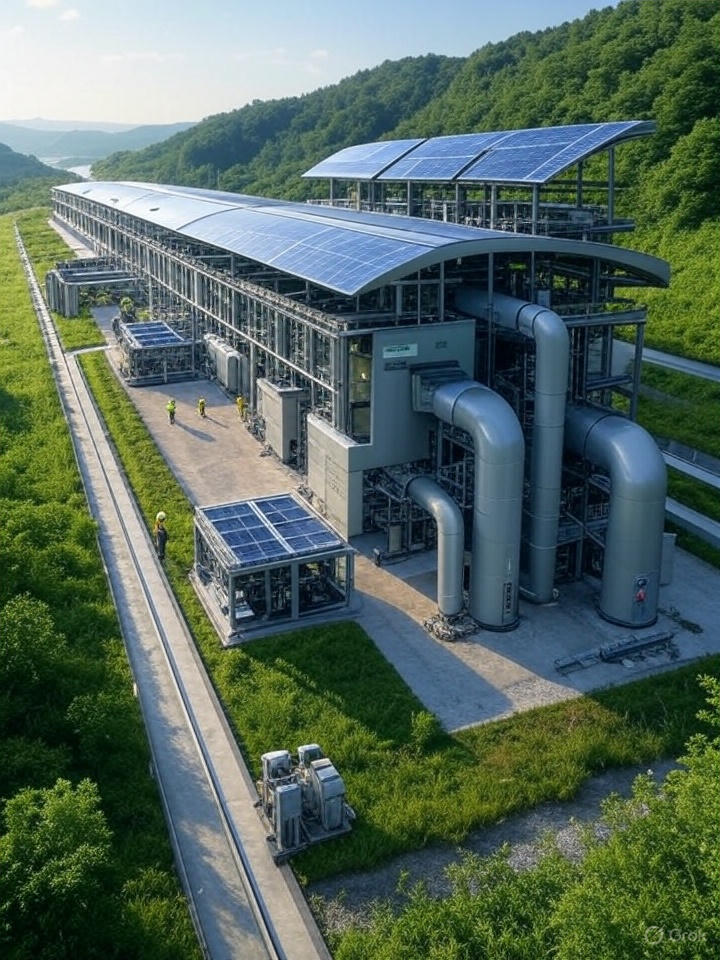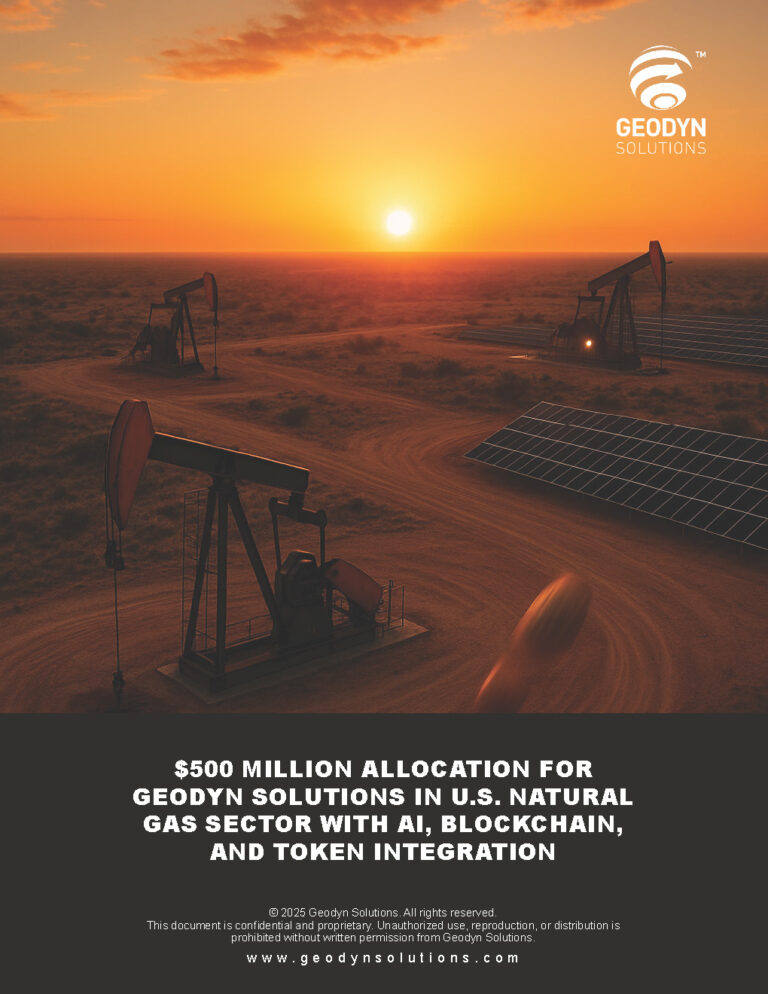$5B Mobile Nuclear Fleet for Emerging Economies
Executive Summary
Geodyn Solutions, in partnership with its strategic partners, proposes a mobile nuclear fleet that provides electricity, industrial heat, and desalinated water to regions with fragile grids, drought impacts, or rapid economic growth. The fleet combines proven floating nuclear power platforms with next-generation small modular reactor (SMR) barges, offering scalable, relocatable energy infrastructure.
- Cost target: $0.22/kWh
- Initial fleet: Three vessels, ~318 MWe combined
- Markets: Zambia, South Africa, and comparable underdeveloped nations
- Value-add: Firm power + water security + rapid disaster relief response
Phase 1 — Deployment in Zambia and South Africa
- South Africa
- Sites: Coastal ports with industrial demand (e.g., Western Cape, KwaZulu-Natal)
- Uses: Firm grid power, district heating for industry, seawater desalination to address chronic droughts.
- Zambia
- Site: Lake-based port (Mpulungu, Lake Tanganyika) feeding Northern and Copperbelt demand centers.
- Uses: Mine power PPAs, drought hedge against reduced hydro output, and local water supply.
Capital & Investment
First three units (318 MWe total):
Category | Estimated Cost (USD) |
|---|---|
Nuclear vessel acquisition & integration (3 units) | $1.95B |
Mooring, interconnections, civil works | $0.25B |
Desalination skids / inland water treatment | $0.10B |
Fuel, tooling, training, security systems | $0.12B |
Licensing, legal, logistics | $0.08B |
Base EPC subtotal | $2.50B |
Contingency (20%) | $0.50B |
Total CAPEX | $3.00B |
OPEX (fleet-wide): ~$160M/year (
Economics
- Annual revenue @ $0.22/kWh: ≈ $490M
- EBITDA after OPEX: ≈ $329M/year
- Payback (Operation X): ~9 years on $3B CAPEX tranche
- 20-year ROI: ~215–220% cumulative
Even at modest 60% capacity factors, ROI remains above 150% over 20 years.
Safety & Security
- Reactor class: Gen III+ small modular reactors with active and passive safety, robust containment, and low-enriched uranium fuel (<20%).
- Marine pedigree: Derived from decades of nuclear icebreaker and marine operations.
- Refueling strategy: 7–10 year cycles; vessels towed out and replaced with spares to avoid downtime.
- Emergency response: Ability to operate islanded microgrids for hospitals, telecoms, and water treatment after disasters.
Environmental & Social Benefits
- Carbon reduction: Each fleet (~318 MWe, 80% CF) avoids ~1.3 million tons CO₂ annually vs. diesel generation.
- Water security: Coastal units power seawater desalination (up to ~70 million liters/day per unit).
- Job creation: ~250–300 direct jobs across the fleet (operations crews, technicians), with ~700+ indirect/induced roles through logistics, civil works, and water operations.
- Economic multiplier: Reliable energy enables industrial expansion, mining productivity, and export competitiveness.
Temporary Bridging Solutions for Power Shortages
While nuclear vessels are under fabrication and licensing, Geodyn Solutions’ strategic partners can deploy modular temporary energy systems to support economic expansion:
- Gas-fired mobile turbines (20–50 MW blocks) that can be relocated after permanent nuclear comes online.
- Hybrid solar + battery microgrids for towns and industrial estates, cutting reliance on diesel imports.
- High-efficiency diesel-to-biofuel gensets for mines and essential services, locked into short-term PPAs with off-ramp clauses once nuclear is ready.
- Mobile desalination barges powered by temporary generation to stabilize water supply ahead of nuclear-backed RO.
These measures allow Zambia and comparable underdeveloped countries to stabilize grids immediately, reduce blackouts, and maintain investor confidence until nuclear assets are operational.
Disaster Relief & Emergency Response
- Rapid tow-in deployment to blackout zones or natural disaster regions.
- Vessels operate as mobile energy hubs: electricity + potable water + heating.
- Refuel-swap model ensures continuous availability without multi-year outages.
Conclusion
The $5B mobile nuclear program offers Zambia, South Africa, and underdeveloped economies a dual strategy:
- Temporary fixes — mobile turbines, hybrid microgrids, and modular desalination for immediate relief.
- Permanent solution — scalable, mobile nuclear vessels that deliver clean baseload electricity, water, and heat at $0.22/kWh, with strong ROI and resilience.
Geodyn Solutions and its strategic partners can execute this phased model to drive economic expansion, energy security, and environmental sustainability.



